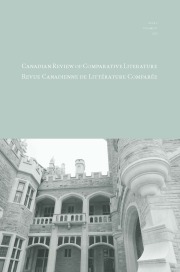
Albert Camus is one of the most controversial twentieth-century literary figures, whose works have been the subject of heated debates for decades. His position towards French imperialism, in particular, has been at the heart of these controversies, eliciting both admiration and bitter criticism from scholars in France and elsewhere. In my recent article entitled “Albert Camus and (Post)colonial Amnesia”, I argue that Camus is more fittingly defined as a para-colonialist writer, much in the tradition of western humanist and neo-humanist writers such as François Rabelais, Bartolomé de las Casas, Joseph Conrad, E.M. Forster, and André Gide, who criticized colonial atrocities in the European colonies without contesting the legitimacy of colonization itself, which paved the way for these atrocities.
Abstract
This essay examines memory in Le Premier Homme (1995) and Noces (1938), with a particular focus on the figure of amnesia. It explores Camus’s relation to French colonialism in these two works and shows how Camus adopts a para-colonialist outlook articulated, in large part, through the prism of amnesia, a key colonial trope, overlooked in discussions of Camus’s writing. Camus uses the motif of amnesia to contest capitalism and dominant colonial narratives of identity and memory, as well as to create new narratives of collective memory. He resorts to amnesia to construct an alternative para-colonial narrative of memory which finally repeats, with a slight variation, the colonialist dominant narratives of history and memory that he ironically contests in his writing. Camus, in the end, perceives amnesia not simply as a symptom of lack or deficiency, but as an energising aesthetic and ideological scheme that blurs the frontiers between colonialist and para-colonialist narratives of domination, literature and politics, and projective memory and selective forgetting.
Reference: Acheraïou, Amar. “Albert Camus and (Post)colonial Amnesia.” Canadian Review of Comparative Literature / Revue Canadienne de Littérature Comparée, vol. 47 no. 2, 2020, p. 158-177. Project MUSE, doi:10.1353/crc.2020.0011.
